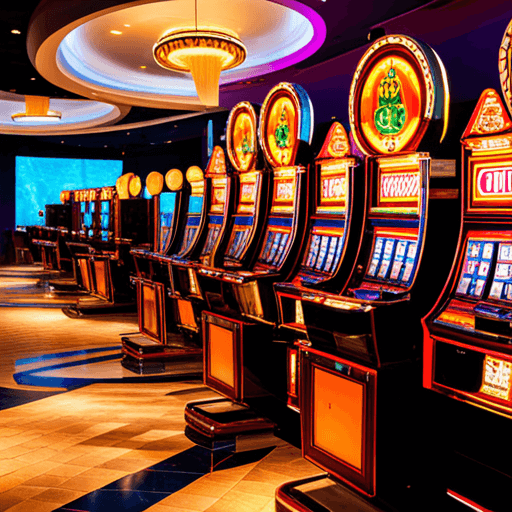
A world of gambling games is continuously evolving, influenced by shifting laws, tech innovations, and evolving player preferences. While authorities and gaming commissions strive to create a secure and fair environment for gamblers, the landscape of gambling laws is experiencing significant modifications. Understanding these developments is crucial for both operators and gamblers looking to explore the thrilling yet intricate world of gaming.
In recent times, multiple jurisdictions have proposed and enforced new regulations aimed at enhancing player protection while promoting safe gambling. These developments not only influence the varieties of casino games offered but also how they are advertised and obtained. In this article, we will examine the latest regulatory updates, their consequences for the gambling sector, and what players can look forward to as they interact with their preferred gambling games.
New Legislative Frameworks
Recent developments in gambling regulations are shaping the direction of casino entertainment across multiple regions. Authorities are acknowledging the importance for a strong governance structure that not just shields customers and also provides fair competition and accountable gambling. These guidelines are designed to address issues such as online gaming, virtual currencies, and developments in technology, reflecting the changing environment of the gaming industry.
One significant change is the adoption of tighter policies regarding transparency and gambler security. Gaming establishments are now required to offer clear details on odds, winnings, and the possible hazards involving gaming. kipclub This shift aims to empower players by helping them make wise decisions while also helping to address gambling addiction through sensible gambling measures. Casino owners are required to establish self-banning systems and provide resources for individuals seeking support.
Additionally, new regulations are being implemented to new technologies such as VR and distributed ledger technology in casino activities. Oversight bodies are developing guidelines to assure that these innovations maintain integrity and equity while also safeguarding gambler privacy. As the industry evolves, oversight bodies are modifying to verify that advancements improve the gaming experience while protecting both customers and providers.
Influence on Gaming Variety
The recent changes in casino game rules have created fresh avenues for games, allowing for enhanced breakthroughs and diversity within the sector. As authorities update their guidelines, game developers are inspired to design unique game offerings that appeal to a larger market. This has produced a diverse collection of innovative games, incorporating various topics, genres, and mechanics that were formerly overlooked or limited by stricter regulations.
With a looser set of rules, gaming establishments are now free to try out various types of games, including skill-based games and participatory play. This change has resulted in a surge in combined games that blend classic gambling features with modern gaming styles, such as video gaming and augmented reality. By diversifying the game offerings offered, gambling establishments can appeal to not only veteran players but also recreational gamers who may favor less conventional choices.
In addition, the evolution of standards has emphasized transparency and equity in games, which could foster higher trust from players. As a consequence, consumers are more inclined to try a broader selection of games, understanding they are engaging with services that follow modern guidelines. This growing trust enhances involvement and can ultimately boost profitability as more broad offerings cater to diverse interests and demographics in the gambling landscape.
Future Trends in Oversight
As the gaming landscape changes, authorities are progressively focused on adopting tech-driven solutions to enhance openness and equity. The integration of blockchain technology into casino operations is anticipated to gain traction, allowing for greater oversight of operations and ensuring that activities remain just and unchangeable. This change could lead to a regulatory framework that embraces these advancements, promoting faith among participants and operators alike.
In addition to tech-based integration, there will likely be a greater emphasis on safe gaming practices within the oversight environment. Authorities are anticipated to implement more stringent measures to promote gambler protection, including required self-exclusion initiatives and robust age verification systems. This change aims to safeguard vulnerable populations while ensuring that the experience of gaming games is maintained for considerate gamblers.
Lastly, as internet gaming continues to grow globally, alignment of regulations across different areas will become a urgent need. Countries may endeavor to work together more closely on common standards for certification, operation, and taxation. This could lead to a more simplified regulatory process for international operators, fostering a wider acceptance of internet casino platforms while maintaining robust of player protection and integrity in the gaming industry.
